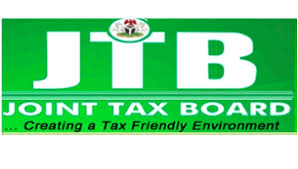In furtherance of its sustained efforts to make the nation’s tax system more investment-friendly, the Joint Tax Board (JTB) has urged local governments to ensure that the incidence of multiple taxation is curbed at sub-national level nationwide.
The Board, which is the umbrella body for all tax authorities in the country, gave the renewed advice in the communiqué issued at the end of recently concluded meeting.
Specifically, the body charged the local government authorities to recognise stickers issued by any local government as covering other regions in the country and desist from asking motorists to pay for the same stickers in their jurisdictions.
The JTB stated: “To avoid incidence of double taxes, any emblem/sticker obtained in any one local government area in the country should be acceptable in other local government areas across the country.”
This is even as the Board instructed state internal revenue services to explore all non-Personal Income Tax sources so that they could boost their Internally Generated Revenue (IGR) and by so doing, have funds to deliver on socio-economic promises to taxpayers.
The Executive Chairman of the FIRS and JTB Chairman, Tunde Fowler, said that tax administrators had a strong sense of responsibility which stems from the fact that the nation is relying on them to provide it with adequate funds with which to fund its development objectives.
The tax expert explained that the responsibility had become more relevant now that Nigeria can no longer rely on oil revenue as the major source of funding and needed to seek innovative ways to maximise non-oil revenue collection.
For instance, to improve significantly non-oil revenue at national level, Fowler said that the FIRS must provide taxpayers with the most convenient, transparent and efficient way to fulfil their tax obligation.
According to him, the FIRS has been able to do this with the deployment of the six e-solutions which gave taxpayers a platform to conduct their tax transactions any day and time from anywhere in the world.
Noting further that Nigeria’s tax-to-GDP ratio is still one of the lowest globally, the tax administrator pointed out that there was a growing need to increase the ratio significantly if governments are to provide the funds that will assure development and take the country back to the days when things worked.






